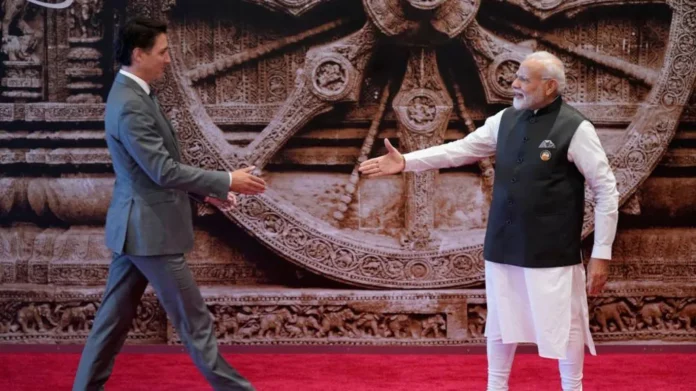In the midst of escalating diplomatic tensions, Canadian Prime Minister Justin Trudeau acknowledged the presence of Khalistani supporters in Canada during Diwali celebrations with the Indian-Canadian community at Parliament Hill in Ottawa. This admission resonates with India’s long-standing concern that Canada has provided a safe environment for Khalistani extremists.
The strained relations between the two nations intensified when Trudeau accused Indian agents of being involved in the assassination of Hardeep Singh Nijjar, a prominent pro-Khalistan activist. India sharply rejected these claims as “absurd” and “baseless.” Recently, Trudeau took another controversial step by designating Indian High Commissioner Sanjay Kumar Verma as a “person of interest” in an unspecified investigation, a move that suggests suspicion but stops short of formal charges.
India’s Ministry of External Affairs (MEA) responded with a strong condemnation, calling Trudeau’s statements “preposterous.” This exchange has led to both nations expelling diplomats, with India expelling six Canadian diplomats, further escalating the diplomatic standoff.
At the heart of this dispute is the Khalistan movement, which aims to establish an independent Sikh state. India has consistently raised concerns about Canada’s perceived tolerance of pro-Khalistani groups within its borders, particularly given Canada’s sizable Sikh diaspora. This ongoing tension highlights the complexities in India-Canada relations, rooted in divergent views on national security and the handling of political movements. As the diplomatic rift widens, it casts a shadow over the future of bilateral cooperation between the two countries.



